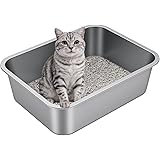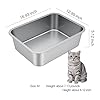As a cat owner, you might wonder if cat worms can spread to other cats or even people. The truth is, yes, cat worms can be contagious in some cases. It’s important to know how cat worms spread and the risks they pose to prevent them from spreading further. For example, cat worm transmission can happen through contact with infected feces, contaminated dirt, or even undercooked meat.
Toxocariasis is caused by the parasite Toxocara, also known as dog or cat roundworm. Many people infected with Toxocara don’t show symptoms, but some may feel fever, cough, or stomach pain. It’s key to understand the risks of cat worms being contagious and take steps to stop them from spreading.
Knowing the signs of worm infestations and the dangers of not treating them is crucial. Cat owners can prevent the spread of these parasites by being informed about cat worm transmission and feline worm risks. By doing so, they can ensure their pets get the care they need to avoid worm infestations.
Key Takeaways
- Cat worms can be contagious to other cats and humans under certain circumstances.
- Understanding cat worm transmission and feline worm risks is crucial to prevent the spread of these parasites.
- Recognizing the symptoms of worm infestations and understanding the risks associated with untreated infections can help cat owners take proactive steps.
- Regular monitoring and preventative care can help minimize worm infection risks.
- Immediate veterinary attention is essential if symptoms of worm infestations are detected.
- Cat owners should be aware of the potential for recurrence in prevalence if worm infections are not fully addressed.
Understanding Cat Worms and Their Types
Cat worms are a big health worry for cat owners. Knowing the different types of worms is key for keeping cats healthy. The main types are roundworms, tapeworms, hookworms, and whipworms. Each has its own symptoms and risks, so it’s important to spot infestations early and act fast.
Regular vet visits and keeping an eye on your cat’s health can catch worms early. Also, good hygiene, like cleaning up after your cat and disinfecting litter boxes, helps stop worms from spreading. Remember, preventing worms in cats also means keeping other pets and people safe.
Common Types of Worms in Cats
- Roundworms
- Tapeworms
- Hookworms
- Whipworms
Symptoms of Worm Infestations
Signs of worms in cats include weight loss, vomiting, diarrhea, and a dull coat. If not treated, worms can cause serious problems like anemia and inflammation. Watching your cat’s health closely and treating worms quickly can prevent these issues and lower feline worm risks.
Transmission Methods of Cat Worms
Cat worms can spread in several ways, like touching infected cats or contaminated places. Fleas also play a role. Knowing how worms spread is key to keeping cats and people healthy. It helps stop worms from spreading and keeps cats safe from disease.
Direct contact with sick cats is a big way worms spread. This happens when cats share bowls or groom each other. Worms can also live in the environment for a long time, in soil, water, and more.
Fleas are important too, as they can carry worms like tapeworms. Keeping cats dewormed and clean is vital. It helps stop worms from spreading and keeps cats and people safe.
| Type of Worm | Transmission Method | Risk of Contagion |
|---|---|---|
| Roundworms | Direct contact, contaminated environment | High |
| Tapeworms | Fleas, contaminated environment | Medium |
| Hookworms | Direct contact, contaminated environment | High |
Knowing how cat worms spread helps owners protect their pets. Deworming, keeping clean, and controlling fleas are important. They help keep cats healthy and safe from disease.
Are Cat Worms Contagious to Other Cats?
Cat worms can spread to other cats, especially kittens. This happens when they touch infected feces or a dirty environment. It’s key to control worms in cats and know how to stop infestations to keep them from spreading.
Contact with Infected Feces
Cats can get worms by touching infected feces. This can occur when they share a litter box or touch dirty soil or water.
Kittens and Their Vulnerability
Kittens are more likely to get worms because their immune systems are still growing. It’s important to protect them from worms. Keep them away from sick cats and keep things clean.
Importance of Isolation
Keeping sick cats away from others is crucial. If you think your cat has worms, keep them separate from other cats. Also, make sure to clean up properly to stop the infection from spreading.
To stop worms from spreading, it’s important to know they can be contagious. By taking these steps, you can keep your cats healthy and stop worms from spreading.
| Worm Type | Transmission Method | Prevention |
|---|---|---|
| Tapeworms | Infected fleas, contaminated environment | Regular deworming, flea control |
| Roundworms | Infected feces, contaminated soil | Regular deworming, proper hygiene |
Can Cat Worms Infect Humans?
Cat worms can be a big risk to human health. This is especially true through cat worm transmission and feline parasite spread. Certain worms, like roundworms and hookworms, can infect people. This usually happens through contact with contaminated feces or environments.
Parasites like Toxocara, Ancylostoma, and Cryptosporidium can affect humans. Symptoms include fever, fatigue, and stomach pain. To avoid these health issues, it’s crucial for pet owners to practice good hygiene and deworm their cats regularly.
For more info on deworming, check out cat health resources. Pet owners can also lower the risk of cat worm transmission. This can be done by keeping their cat’s area clean and avoiding contact with dirty soil or feces.
- Practicing good hygiene, such as washing hands regularly
- Keeping the cat’s living environment clean and free of contaminated feces or soil
- Administering regular deworming treatments to the cat
- Avoiding contact with contaminated soil or feces
By following these steps, pet owners can lower the risk of feline parasite spread. This helps protect both their cat and themselves.
| Parasite | Symptoms in Humans | Preventive Measures |
|---|---|---|
| Toxocara | Fever, fatigue, abdominal pain | Practice good hygiene, keep environment clean |
| Ancylostoma | Skin lesions, abdominal pain | Avoid contact with contaminated soil or feces |
| Cryptosporidium | Diarrhea, abdominal pain | Administer regular deworming treatments to cat |
Diagnosing Worm Infestations in Cats
To find out if a cat has worms, a vet will do a physical check, lab tests, and regular visits. The American Animal Hospital Association says up to 45% of cats in the U.S. have worms. This makes worm prevention in cats very important for their health.
Signs of worms in cats include losing weight, having diarrhea, and vomiting. But some cats don’t show any signs. So, it’s key to take them for regular check-ups for feline worm control. A vet will use physical checks, lab tests, and stool screenings to find worms.
- Regular stool screenings
- Flea control
- Monthly deworming with products like Revolution Plus
- Keeping the cat’s living area clean
By doing these things, cat owners can lower the chance of worms. This helps keep their cats healthy and happy, tackling importantcat health concerns.
Treatment Options for Cat Worms
There are many ways to treat cat worms. Keeping your cat healthy is key. This includes using medicines, home remedies, and follow-up care.
Medicines are a common choice for treating cat worms. Deworming medications like praziquantel work well against many parasites. Always talk to a vet to find the right treatment for your cat.
Home remedies can also help. Adding pumpkin or fiber to your cat’s food can aid digestion. But, always check with a vet before trying any home remedies.
After treatment, regular check-ups are important. This includes fecal exams and preventive measures like deworming and flea control. With a vet’s help, you can keep your cat worm-free.
Preventing Worm Infestations in Cats
To keep cats worm-free, you need to deworm them regularly, keep their living space clean, and feed them well. Feline worm control is key for your cat’s health. Talk to your vet to set up a deworming schedule that fits your cat’s needs.
Keeping your cat’s environment clean is also vital. Clean their litter box, wash their bowls, and throw away their waste. Proper hygiene practices lower worm risks and keep your cat healthy. A nutritious diet also boosts your cat’s immune system, helping prevent worms.
Here are some tips to prevent worms in cats:
- Regular deworming schedules
- Maintaining a clean living environment
- Providing proper nutrition
- Practicing good hygiene
By following these tips and consulting with your vet, you can keep your cat worm-free. Remember, cat health concerns like worms can be serious if not treated. So, it’s crucial to act early to prevent them.
| Worm Type | Prevention Method |
|---|---|
| Roundworms | Regular deworming schedules |
| Tapeworms | Maintaining a clean living environment |
Common Misconceptions About Cat Worms
Many cat owners have wrong ideas about cat worms, like are cat worms contagious and their life cycle. Knowing the truth about cat health concerns is key to caring for your pet.
Some myths say cat worms aren’t contagious or only hit outdoor cats. But, the truth is, feline worm risks can hit any cat, indoor or outdoor. Indoor cats can get parasites from dogs, through windows, doors, or dirty shoes.
Here are some important facts about cat worms:
- Heartworm disease has been found in all 50 U.S. states.
- Cats can host a few heartworms that can’t reproduce.
- Heartworm in cats is hard to diagnose, can’t be treated, and is often fatal.
Understanding worm life cycles and their impact on your cat’s health is crucial. By knowing the risks and taking steps to prevent them, you can protect your cat from are cat worms contagious and other health issues.
Remember, cat health concerns should always be a top priority for cat owners. By staying informed and taking the right steps, you can help your cat live a happy and healthy life.
The Role of Veterinary Care in Prevention
Veterinary care is key in stopping worms in cats. Regular vet visits can spot health problems early, like worms. Talking to your vet about prevention is crucial for your cat’s health.
Some important parts of vet care for worm prevention are:
- Regular fecal exams to detect internal parasites
- Vaccinations to protect against diseases that can increase the risk of worm infestations
- Prescription of worm prevention medication, such as those for feline worm control
Importance of Routine Check-Ups
Regular vet visits are vital for your cat’s health and worm prevention. These visits help your vet keep an eye on your cat’s health. They can catch worm problems early.
Choosing the Right Veterinary Practice
Finding the right vet is crucial for your cat’s care. Look for a vet with experience in cat health and worm prevention. They should offer regular check-ups and preventive care.
| Veterinary Service | Importance in Worm Prevention |
|---|---|
| Regular Fecal Exams | Early detection of internal parasites |
| Vaccinations | Protection against diseases that increase the risk of worm infestations |
| Prescription of Worm Prevention Medication | Prevention of worm infestations through medication |
Worm Prevention Tips for Cat Owners
As a cat owner, it’s key to prevent worms in your pets. Good hygiene, regular vet visits, and knowing about parasites are crucial. These steps can greatly lower the chance of worms in your cats.
Keeping your home clean is vital. Clean food and water bowls, litter boxes, and surfaces your cat touches. Also, wash your hands well after touching your cat or its waste. This helps stop parasites from spreading.
Safe Practices for Multi-Pet Homes
In homes with many pets, worms can spread more easily. To avoid this, keep things clean and well-ventilated. Use separate bowls for each pet’s food and water. Also, clean and disinfect litter boxes and areas where pets hang out often.
- Keep your pets’ living areas clean and well-ventilated
- Provide separate food and water bowls for each pet
- Regularly clean and disinfect litter boxes and other areas where pets frequent
Outdoor vs. Indoor Cat Considerations
Outdoor cats face more risks of worms because of soil, water, and animal contact. Indoor cats can still get worms from fleas or parasites. Deworming and prevention can help lower these risks.
Keeping Your Home Worm-Free
To keep your home worm-free, practice good hygiene and watch for worm signs in your cat. Work with your vet to control worms and parasites. This way, you can keep your cat healthy and happy.
| Preventative Measure | Frequency |
|---|---|
| Regular deworming | Monthly or twice yearly, depending on the cat’s lifestyle and exposure to parasites |
| Veterinary check-ups | Annually, or more frequently for kittens or senior cats |
| Hygiene practices | Daily, including regular cleaning and disinfection of food and water bowls, litter boxes, and other areas where cats frequent |
What to Do if You Suspect Worms in Your Cat
If you think your cat has worms, act fast. Feline worm risks are real, and your cat’s health is key. Watch for signs like weight loss, more eating, or a big belly.
Remember, are cat worms contagious to other cats and people. If you have many cats, keep their litter boxes clean. Use separate boxes for each cat. Regular deworming helps stop worms from spreading.
Here’s what to do if you think your cat has worms:
- See your vet for advice.
- Keep your cat away from other pets to stop worms from spreading.
- Do what your vet says about deworming.
By following these steps, you can protect your cat and stop worms from spreading. Always put your cat’s health first. Getting vet help is the best way to make sure your cat gets the right care.
| Parasite | Transmission Method | Symptoms |
|---|---|---|
| Roundworms | Ingestion of contaminated feces or soil | Weight loss, increased appetite, pot-bellied appearance |
| Hookworms | Skin contact with contaminated soil or sand | Diarrhea, weight loss, anemia |
The Long-Term Impact of Cat Worms
Chronic feline worm infestations can harm a cat’s health a lot. They can lead to many health problems. Just Cats Clinic says it’s key to deworm cats regularly to stop diseases from spreading. Good feline worm control can lower the chance of these problems.
A cat with worms might eat more or lose weight. Sometimes, cat parasite management needs meds and changes in how the cat lives. It’s important to get help from a vet to manage worm problems and avoid long-term health issues.
Health Complications from Chronic Infestations
Worms can cause many health issues, like stomach problems and breathing troubles. In bad cases, these can be very serious. Regular vet visits and feline worm control can stop these problems and keep the cat healthy for a long time.
The Importance of Early Detection
Finding worms early is key to managing them and avoiding health problems. By working with a vet and using good cat parasite management methods, cat owners can lower the risk of worms. This helps keep their cats healthy and happy.
Conclusion: Ensuring Your Cat’s Health
Keeping your cat safe from worms is a big job. You need to deworm them regularly, keep things clean, and watch for signs of trouble. Knowing how to prevent worms and spotting health issues early is crucial for your cat’s happiness and health.
Start by working with your vet. They can tell you when to deworm, what meds to use, and spot any hidden problems. Remember, stopping worms before they start is the best way to protect your cat.
As a pet owner, it’s important to learn about cat worms. Know how they spread and how to treat them. By being proactive, you’ll make sure your cat stays healthy and you’ll feel better too. Let’s all work together to keep our cats happy and healthy.































































